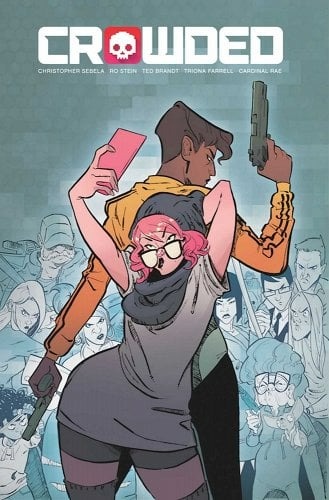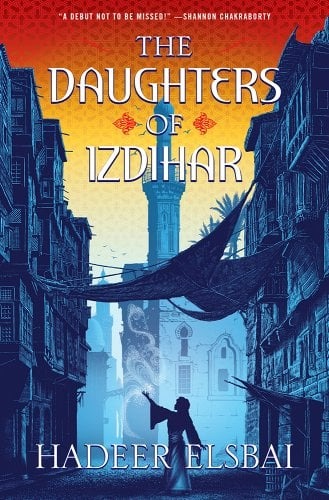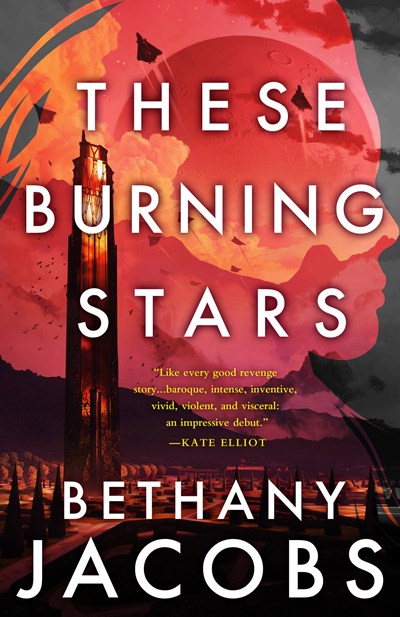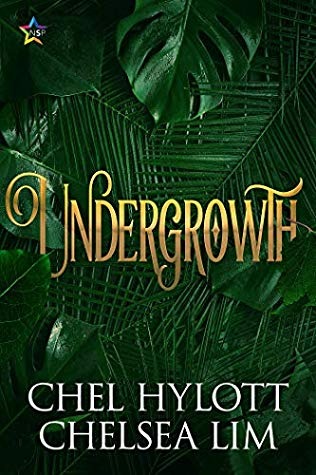Buy this from Bookshop.org to support local bookstores and the Lesbrary! The Space Between Worlds is one of the best stories I have ever read, and I’m not even exaggerating. This novel follows Cara, a poor girl from Ashtown who is trying to make it in rich Wiley City long enough to become a permanent citizen. Her job? To traverseRead More
Murder by Crowdfunding: Crowded Vol. 1 by Christopher Sebela et al.
Buy this from Bookshop.org to support local bookstores and the Lesbrary! The Crowded comic book series tells the satirical story of a dystopian world not too far in the future where the gig economy has become unhinged. In this world, everything has a price, including putting out hits on someone’s life through an app called Reapr. AnyoneRead More
A Thrilling Elemental Fantasy Debut: The Daughters of Izdihar by Hadeer Elsbair
Buy this from Bookshop.org to support local bookstores and the Lesbrary! Nehal has practically everything that a woman could ask for: wealth, a prestigious name, an engagement to one of the most eligible men in Alamaxa. What she doesn’t have, though, is the right to join the Weaving Academy on her own and learn howRead More
F/F Jamaican-Inspired YA Fantasy with Dragons: So Let Them Burn by Kamilah Cole
Buy this from Bookshop.org to support local bookstores and the Lesbrary! Any other Eragon girlies out there? Check out So Let Them Burn, a Jamaican-inspired F/F young adult fantasy that delivered from beginning to end! This moving and action-packed debut has made me a Kamilah Cole fangirl and I can’t wait for the second book inRead More
A Sapphic Space Opera of Smoldering Obsession: These Burning Stars by Bethany Jacobs
Buy this from Bookshop.org to support local bookstores and the Lesbrary! If you’re looking for a queer space opera chock full of complex politics, smoldering obsession, and ever escalating revenge, These Burning Stars by Bethany Jacobs is a worthy entry into the field. Renowned hacker Jun “Sunstep” Ironway has gotten her hands on a piece ofRead More
LA as a Not-So-Urban Jungle: Undergrowth by Chel Hylott and Chelsea Lim
Bookshop.org Affiliate Link Seventeen-year-old Mariam finds herself surviving a Los Angeles that has been overrun by a magic jungle of horror. Along the way, she meets a group of other survivors, and together they become a family. But Mariam has her secrets. She magically heals and cannot die thanks to a deal with the devilRead More
Ungovernable Gender Chinese Fantasy: The Water Outlaws by S.L. Huang
Bookshop.org Affiliate Link When a book is described as being about ruthless bandits with unseemly femininity and ungovernable gender, let’s just say that I had little to no choice in devouring every single page of The Water Outlaws by S.L. Huang. It’s a queer martial arts political epic fantasy retelling of a Chinese classic called Water Margin. ButRead More
Evil Gods, Murder, and Angry Women: The City of Dusk by Tara Sim
Bookshop.org Affiliate Link Tara Sim’s The City of Dusk has been on my to-read list for a while now, and with the second book in the series—The Midnight Kingdom—having just come out, now seemed a great time to get around to it. This dark fantasy novel follows the four heirs of the noble houses of Nexus: Taesia,Read More
An F/F Romance for Women’s Soccer Fans: Cleat Cute by Meryl Wilsner
Bookshop.org Affiliate Link For everyone currently getting excited about women’s soccer, Cleat Cute by Meryl Wilsner, out September 19, is a cute romance between two teammates during the leadup to a World Cup year. I would like to thank the publisher for providing The Lesbrary with an ARC for review. I honestly enjoyed this storyRead More
Danielle Izzard reviews Nothing Sung and Nothing Spoken by Nita Tyndall
Amazon Affiliate Link | Bookshop.org Affiliate Link Nothing Sung and Nothing Spoken by Nita Tyndall is a queer YA historical fiction novel—a genre that I had yet to come across, and knew I had to read as soon as it was released. I was immediately intrigued by its poetic title, as well as by theRead More



